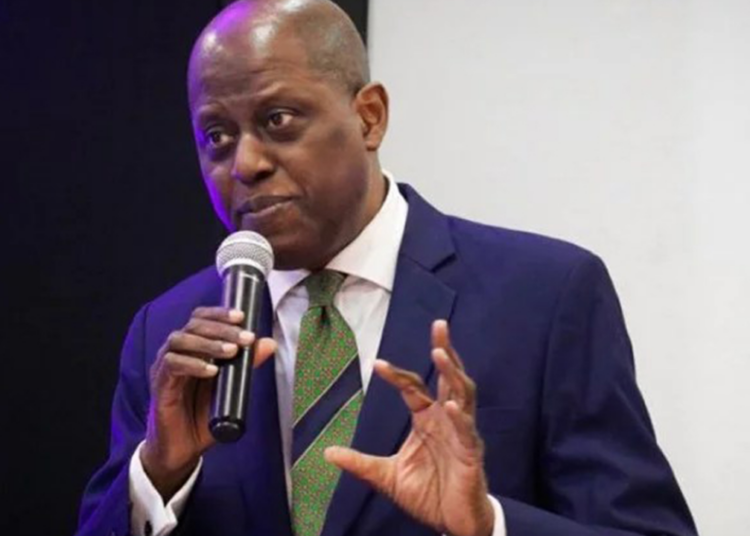Governor of the Central Bank of Nigeria Olayemi Cardoso has said there is a need for the federal government to continuously review its medium-term debt management strategy (MTDMS) to tackle emerging economic challenges and ensure effective debt management in a bid to achieve development objectives.
Nigeria has periodically developed and updated its MTDS to reflect changing economic conditions, funding needs, and the global financial environment. MTDS has always guided its debt management activities, the most recent being the MTDS 2020-2023.
The CBN governor said while significant progress has been made in implementing the strategy, ongoing challenges related to exchange rate volatility, inadequate revenue generation, and external shocks, such as oil price volatility, “would necessitate continuous refining of the MTDS to address these challenges and leveraging opportunities.”
Cardoso said Nigeria must remain vigilant, especially regarding potential liquidity risks. “If not adequately addressed, these risks could arise from weak revenue mobilisation, a persistent challenge undermining debt sustainability and economic stability,” he said yesterday at a joint World Bank/IMF/WAIFEM regional training on Medium-Term Debt Management Strategy in Abuja.
The one-week training aims to enhance participants’ knowledge and skills in designing and implementing the medium-term debt strategy.
Director-general of the West African West African Institute for Financial and Economic Management (WAIFEM) Dr Baba Yusuf Musa said Nigeria and other West African countries must improve their debt management strategies and have a plan that balances the need for financing against the costs and risks associated with borrowing options, including the risk of default and the potential for debt distress.
The WAIFEM DG said the fact that Nigeria’s current 37 percent debt to GDP ratio still creates room to borrow shouldn’t be anything to celebrate. Instead, he said the government must ensure effective revenue mobilisation to fund fiscal deficits and borrow less.
“The issue with the Nigerian debt is you don’t use GDP to pay rather you use revenue to pay for any debt. And therefore, if you look at it from the revenue side we are at a high risk of debt distress in terms of our borrowing. So, what we need to do now is to step up our capacity to generate revenue, the more revenue we have, the less the ratio of debt to revenue we have.
“We are very much in support of what the federal government is doing because there is a window for us to raise more revenue all we need to do is to support the FGN diversify the sources of our revenue and of course generate more sources of revenue, once we have this we don’t really have debt problem but rather revenue problem,” he said.
Nigeria is currently assessed to be at a “moderate” overall risk of sovereign stress. Cardoso said Nigeria’s situation is stable despite the near-term risks attributed to unfavourable global market conditions and the increased debt burden since the pandemic.
The external debt-to-GDP ratio is a manageable nine percent, indicating cautious external borrowing. Most (85 percent) of its debt has medium to long-term maturities, and compared to developing economies’ average of 50 percent GDP, Nigeria’s debt level at 37 per cent GDP shows it’s in a relatively favourable position regarding debt sustainability.





